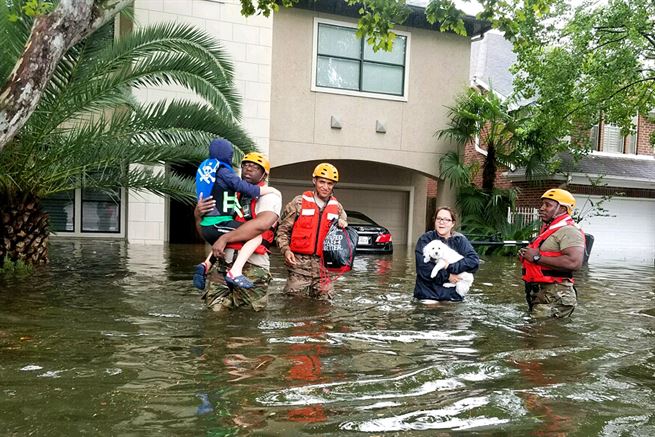New polling data provides some inspiring news about the prospects for climate change action in the United States. According to public policy polling conducted by AP–NORC and the Energy Policy Institute at The University of Chicago, 61% of American citizens believe that climate change is a threat that the federal government should actively work to prevent. The poll also reveals that majorities in both major political parties – Democrats and Republicans – accept the fact that climate change is actually happening and that human activity is making it worse.
This data reinforces previous polling data indicating that a majority of American citizens, regardless of party affiliation, believe that climate change is a serious issue demanding urgent political action.
What sets the new set of data apart from the rest is also the part that makes it slightly less uplifting.
The poll found that 51% of Americans are willing to pay $1 per month to combat the growing threat of climate change, but when you start look at numbers higher than a dollar per month, the willingness of American citizens to foot the bill begins to decline sharply.
Additionally, the poll found a majority of citizens are against fracking, especially when they learn about the negative health effects from the oil and gas drilling process. However, support for fracking rises to nearly 41% when citizens are told that it could save them a few hundred dollars each year on their electric bills.
The new data helps to provide a clearer picture of how American citizens tend to view most non-social issues, and that is through the lens of finance.
When presented with data showing that dirty energy is harmful — but might save them money (in the short term) — they gravitate towards the “saving money” rather “saving lives” side of the climate equation.
But the fact that most people are willing to shell out even one dollar per month is actually a giant leap forward in terms of Americans’ willingness to address the growing threat of climate change, even if they may have to foot part of the bill.
Another interesting point about these polls is that the data was actually collected prior to the devastating string of hurricanes that hit the US — Harvey, Irma, and Maria — that captured the attention of the public and brought the issue of climate change to the forefront, albeit for a brief period of time.
There’s no doubt that the federal government could and should devote a lot more taxpayer money to fight climate change. Instead, Washington is currently choosing to subsidize an industry that is struggling to survive, and is significantly responsible for the climate change that’s hurting us now.
Why Not Fund Climate Action With Polluter Profits?
Ultimately, when it comes to paying for action to combat climate change, American citizens might consider asking their representatives in Washington to hold polluting industry responsible for funding the US response to climate change. After all, the fossil fuel industry bears significant responsibility for our current and future global warming predicament.
A recent report found that subsidies to the fossil fuel industry top $5 trillion a year – money that could instead be spent on infrastructure to protect low-lying cities from flooding in the event of rising waters, for instance. That money could also be used to provide more subsidies to the renewable energy sector which is already growing at a pace that far exceeds that of the fossil fuel sector.
Perhaps if we end the federal life support going to fossil fuel companies — a form of corporate welfare that is far from necessary — we could finally start addressing climate change without having to ask taxpayers to cough up a few extra dollars every month.
Image: Texas Army National Guardsmen assist residents affected by flooding caused by Hurricane Harvey in Houston, Aug. 27, 2017. Army National Guard photo by Lt. Zachary West.
Subscribe to our newsletter
Stay up to date with DeSmog news and alerts







